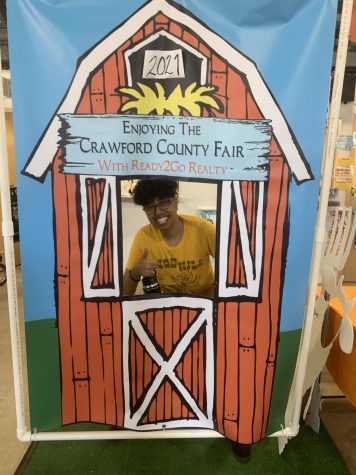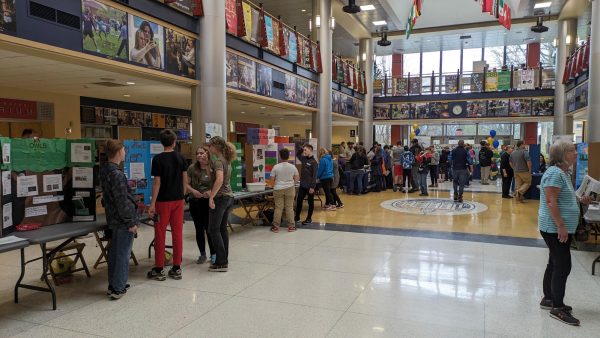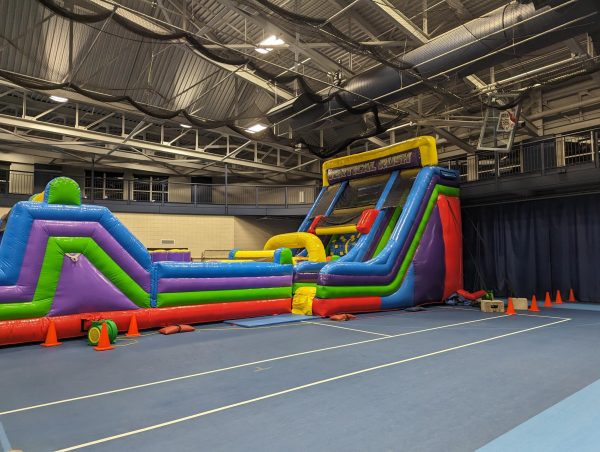Faculty members’ children participate in vaccine study
The US Food and Drug Administration approved an Emergency Use Authorization of vaccines for COVID-19 in December 2020, with the most vulnerable — the elderly and the immunocompromised — being the first to receive the vaccines.
Now, almost a year later, children aged five to eleven — those presumed to be the most resilient against the virus — have been given access to the vaccine, following a period of trials and studies around the country and nearby in Erie, Pa. to see whether the vaccine is safe and effective in children aged five to eleven.
According to Becky Dawson, ’00, an epidemiologist and professor of global health studies and biology the study is investigating if the vaccine is safe for children 5 to 11-years-old since there have been reports of very rare myocarditis or pericarditis — both inflammation affecting the heart — following vaccination. The study is blinded, meaning that the participants and their parents do not know whether they are getting the placebo or the vaccine. Two-thirds of the participants get the vaccine while one-third are given the placebo.
The point of this study is to see if the vaccine has any effect on the heart through the monitoring of troponin, a type of protein that affects the heart and its ability to contract and function correctly; blood was drawn before the first shot to gauge troponin levels and will be taken again later in the study.
Each participant is asked to monitor their health with the use of an app each day after their first shot to see if they suffer any side effects.
Since the CDC has approved the administration of the vaccine to children 5-11, the study will now be unblinded, meaning participants will be told whether they got the placebo or the vaccine.
Professor of Biology and Neuroscience Lauren French is one of a handful of parents on campus who have a child participating in the study.
“This is live science, this is how it happens and up until this point I’ve only read about (pandemics),” French said. “(I heard about it from) a colleague of mine who sent a message out to a bunch of folks who have kids that she knew and said ‘Hey, Pfizer is conducting this study, it’s still looking for more participants and it’s based in Erie,’” French said. “So I jumped on that being a biology professor.”
French is not the only faculty member with a child in the study, Dawson also has her son participating in the study as well.
“Living through a pandemic is one thing but being part of a vaccine trial that gets the vaccine to kids is a huge part of it, so that was exciting,” Dawson said
The opportunity to be a part of history was a point of importance for French as well, however giving her child a head start on getting vaccinated was also of importance.
“I think, as a parent, the idea that he could get vaccinated because I didn’t know if the process would be official by this week or if it would be longer,” French said. “My husband and I both got vaccinated last February or March. My daughter is 13, so she was vaccinated in May … yet we’ve still had to live remembering that my son is not vaccinated. We don’t go out to restaurants, we wear masks in public.”
Both also agree that the way to combat misinformation is to have closer, more intimate conversations with the people in our communities about health and about the vaccine. Dawson explained some of the reasoning behind people who go to school board meetings to rail against vaccines and masks and the anti-vax ethos in general.
“A lot of the misinformation is rooted somewhere in the truth,” Dawson said. “I’ve just been frustrated with people using social media as their main form of research, of not taking the time to understand the truth. My big battle cry over the past couple of weeks is that people really need to start talking to their providers again, whether it’s calling and talking to the health department, calling and talking to a primary care physician or a pediatrician at this point in time, finding experts, whether it’s at a local college or university, but not just digging ourselves into a hole on the internet.”
As of Nov. 3, the CDC has approved only the Pfizer vaccine for administration to children between the ages of five and eleven.
Studies will be ongoing but as of now it appears that as for all other age groups so far the COVID-19 vaccine is safe and effective. Vaccinations are available at Meadville Medical Center as well as multiple pharmacies such as CVS and Walgreens, with all vaccinations being free of charge.

Mo is a sophomore from Columbus, Ohio. He is majoring in English and possibly minoring in JPI and/or Political Science. He is the Features Editor and this...






